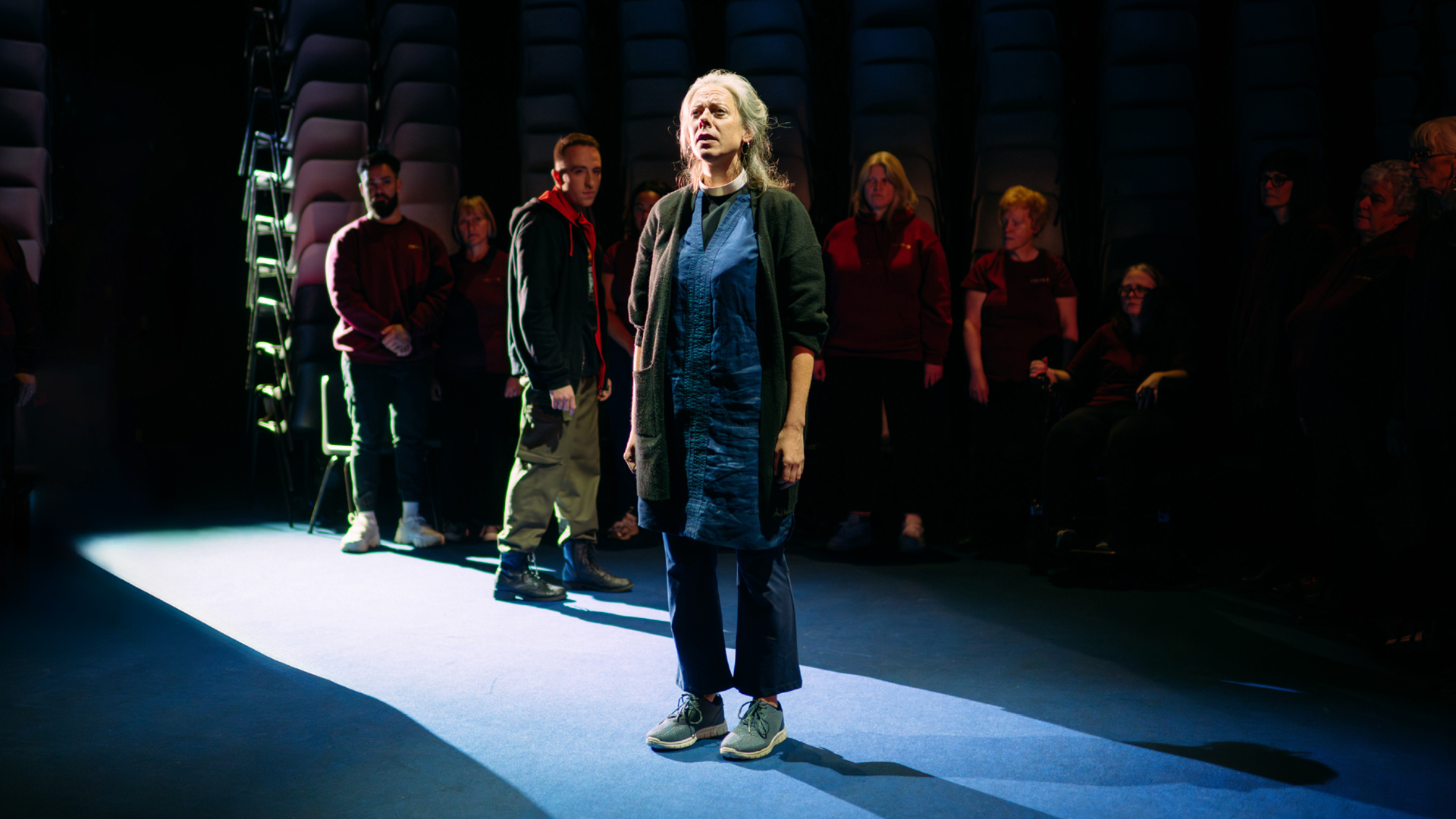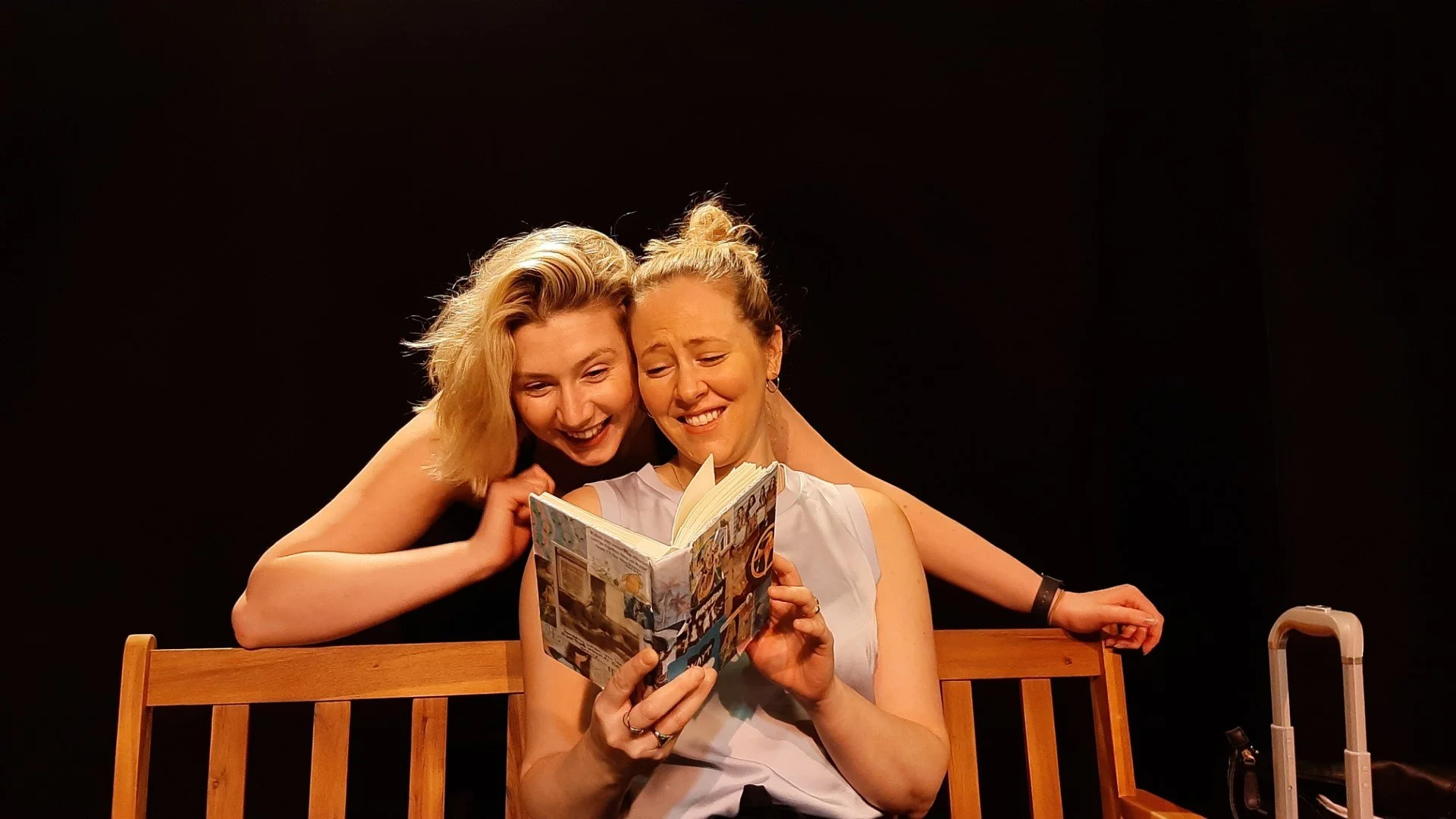Eurydice, Jermyn Street Theatre Review
Leyon Stolz-Hunter, Katy Brittain and Tom Morley in Eurydice at Jermyn Street Theatre. Photography by Alex Brenner.
Reviewed by Cathie for Theatre and Tonic
Disclaimer: Gifted tickets in exchange for an honest review.
With an abundance of Greek myths based shows running in the West End at the moment, the Jeremyn Street theatre has decided to focus on presenting Sarah Ruhl’s Eurydice. The tale of Orpheus and Eurydice, as the two lovers who attempt to defy death and the Lord of the Underworld himself to reunite is both romantic and deeply tragic. Usually, the majority of the myths and adaptations focus on Orpheus and his journey to the underworld, however, this show attempts a feminist retelling by focusing on Eurydice both her death and her journey through the underworld.
Ruhl’s adaptation feels like a disjointed, fantastical dream of Lewis Carroll’s Wonderland aesthetics and oddly phrased lines. We meet Orpheus (Keaton Guimarães-Tolley) and Eurydice (Eve Ponsonby) lounging on a beach, supposedly deeply in love but their connection is shown to be out of sync and halting in their attempts to understand each other’s interests. This lack of rhythm together means the couple pay dearly in the climax of the play. As Eurydice’s wedding day dawns so brightly it quickly ends in tragedy with a speedy journey to the underworld delivered by Hades’s sinister manipulation.
In contrast to this arrival, we meet her dearly beloved dead father (Dickon Tyrrell) practising his father of the bride speech he never expects to deliver. Tyrrell’s performance is brilliantly earnest and empowered as he fights subversively against the strict rules of the underworld to connect with and guide his daughter through her time with him there. He is the most layered character and is the true centre of this play. Hades (Joe Wiltshire Smith) is a deeply unpleasant and uninteresting man despite constantly saying things are “interesting”. Smith clearly greatly enjoys this zany interpretation and plays the character with much relish and sinister gusto. The stones (Tom Morley, Leyon Stolz-Hunter and Kate Britain) bring much needed levity to Asphodel’s beige fields and provide translation between the dead and the living in between sharp, plaintive bursts of complaints for peace and quiet. They are similar to the annoying flowers that Alice so dislikes within Wonderland. The actors are all nuanced, empathetic and polished in their performance and do well to make this odd retelling as convincing and compelling as possible.
The use of lighting and sound effects excellently make this cosy theatre echo with the effect of being a vast cavern of lost souls and beautifully represent both the power of Orpheus’s song and the devastation and deep longing of the songs of the dead. The costuming was also fabulously ethereal and executed well to show the change from blushing bride to corpse bride, along with a deeply disturbing Hades aging “downwards” throughout the plot.
Although this is an interesting play that gives a different focus on the well known myth, it focuses on the father and his time in the underworld to the detriment of everything else, including over shadowing Eurydice and her experiences and making the other characters feel shallow and stone like in contrast. Much of her actions, motivations and supposed empowerment feel stripped away as she appears a more vulnerable, innocent daughter than an empowered woman seeking her own tale.
Therefore it feels less feminist retelling. This is most sharply emphasised with the blame for Orpheus turning placed firmly on Eurydice and implying she preferred the thought of staying dead with her father to rejoicing in life with her loving husband.
The grief of the characters feels pushed aside by the playful interactions, only to intensely bubble up at random moments but these are few and far between. This along with one of the strangest adaptations of Hades I’ve ever seen, lessens the tension and taut plot into a strange tragicomedy. Even at 90 minutes straight running time, the plot meanders and flows to make the ending seem highly rushed and anti climactic with a deeply unsatisfactory ending for the tale of enduring love. With some changes to the pace this would feel a much more focused tragicomedy and showcase the absurdity of the myth in a more nuanced modern incarnation.
If you enjoy interesting retellings of well known myths from a different perspective and enjoy whimsical views on tragedy to find joy through the pain, or just like the idea of hearing stones complain then this is the play for you.
At Jermyn Street Theatre until 9 Nov.
★ ★ ★




